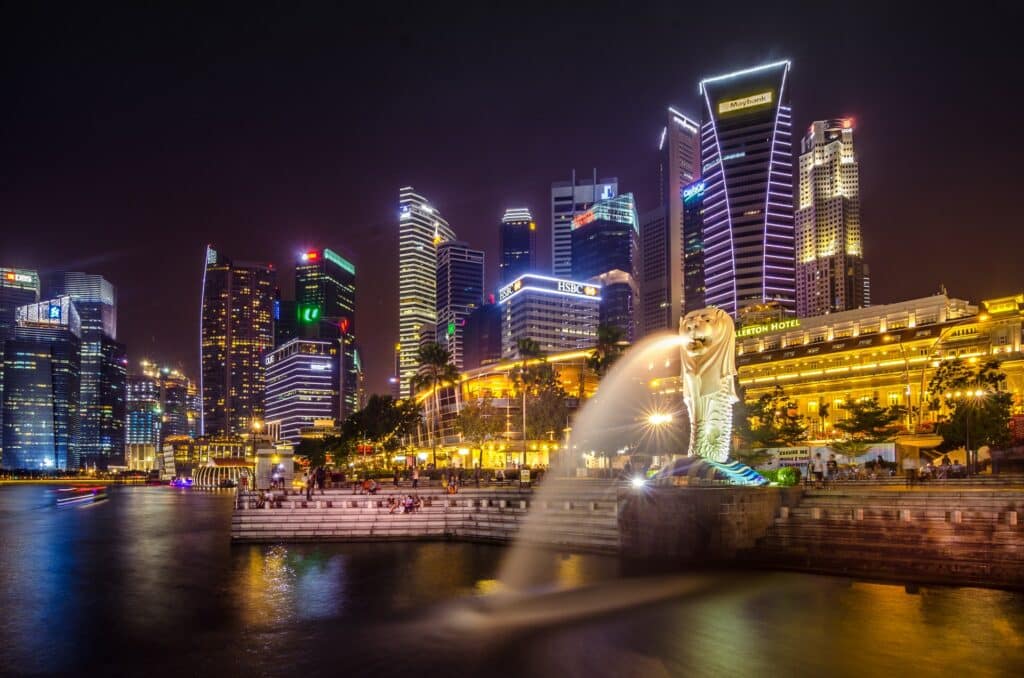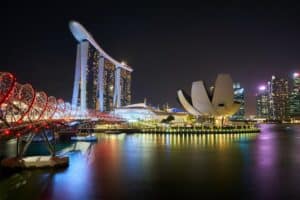Property in Singapore: A 2022 Essential Beginners Guide Great For Foreigners Real Estate In Singapore – that will be the topic of today’s article.
If you have any questions or want to invest as an expat or high-net-worth individual, you can email me (advice@adamfayed.com) or use these contact options.
Introduction
Property in Singapore—According to recent reports, despite the economic constraints imposed by the pandemic, the property sector in Singapore is presently witnessing an increased trend of international buyer groups purchasing homes with the goal of house ownership. What is motivating this expanding buyer group’s behaviour, and why is Singapore seen as a top choice for property purchasing in these uncertain times?
Singapore’s current standing as the premier investment destination in Southeast Asia is one of the most important considerations. Furthermore, Singapore has drawn a global network of buyers and investors due to its well-protected property rights and clear regulatory framework, which give buyers and investors confidence and security when investing in real estate.
We’ve put together a helpful foreigner’s guide to navigating property purchases in Singapore here at Property Giant. It contains a large number of important definitions and rules. Overall, we can tell you that Singapore is the finest place to extend your investment opportunities or to buy a residential property and call it home.
In Singapore, Who Is Considered A ‘foreigner’?
According to the Singapore Land Authority (SLA), a foreigner is someone who is not a Singapore citizen, a Singapore business, a Singapore limited liability partnership, or a Singapore society. Singapore Permanent Residents (SPR) are notable in that they are considered foreigners.
So, What Properties Are Available For Foreigners To Purchase In Singapore?
Residential properties are divided into two categories under the Residential Property Act: restricted and non-restricted properties. The approval of restricted properties must be sought through the Singapore Land Authority’s Land Dealings Approval Unit (LDAU) (SLA). Foreigners can buy non-restricted properties in Singapore, however they can only buy restricted properties with the LDAU’s consent.
Certain requirements must be met in order for your application to be approved: you must have been a permanent resident of Singapore for at least five years and you must make a significant economic contribution to the country. Your employment income that is taxed in Singapore is also factored into the calculation.
When Buying A Home In Singapore, What Taxes Do Foreigners Have To Pay?
When purchasing residential property, both foreigners and Singaporeans must pay the Buyer’s Stamp Duty (BSD). BSD is computed in general based on the property’s pricing point and market worth. Simply put, higher purchase prices for residential properties result in higher tax rates.
Foreigners are also liable to the Additional Buyer’s Stamp Duty (ABSD), which is equal to 20% of the property’s market value. ABSD is exclusively applied to Foreigners (FRs) and, in particular, Singapore Citizens (SCs) and Singapore Permanent Residents (SPRs) who intend to buy multiple residential properties.
Due to trade agreements Singapore has with the United States and the European Free Trade Association (EFTA), nationals from countries such as Iceland, Liechtenstein, Norway, Switzerland, and the United States are exempt from ABSD. These people have identical property rights to Singaporeans.
Registration fees, maintenance fees, and legal services fees are all additional fees that foreigners must pay.
In Singapore, How Do Foreigners Qualify For Home Loans?
Foreigners should familiarise themselves with the regulations governing foreign property ownership and determine which home loans they are eligible for. Foreigners can apply for home loans in the same way as Singapore Citizens (SCs) and Singapore Permanent Residents (SPRs) do (SPRs). However, different banks will provide different loan packages and financing possibilities.
Foreigners’ eligibility for loans is influenced by a variety of factors, including their source of income, job position, age and residency status, and, most crucially, their credit standing. The loan-to-value ratio available to foreigners varies between 50 and 70%, depending on the bank you choose.
Are you unsure which home loan you qualify for, as well as which loan packages will best suit your financial goals? Please contact us at +65 6100 6199 to schedule a consultation.
Is It Possible For Foreigners To Buy Property In Singapore With Their Singapore Citizen/Pr Spouse?

Yes, it is correct. In reality, Singaporeans with foreign spouses constitute a growing purchasing category. As of 2019, it is estimated that one out of every four citizen weddings includes a foreign partner.
Foreigners with Singapore Citizen (SC) or Singapore Permanent Resident (SPR) spouses can buy some public and private housing in Singapore. If you’re married to a Singapore citizen, you can apply for the Non-Citizen Spouse Scheme, which allows you to apply for two-room flexi BTOs or resale apartments. Aside from that, you can buy resale EC units after their 5-year MOP, rather than merely privatised EC units that are at least 10 years old.
Is It Possible For Foreigners To Purchase Hdb Flats In Singapore?
Yes and no are the answers. If a foreigner has a fiancé or fiancée, or spouse who is regarded a Singapore Citizen, he or she is eligible to purchase a HDB (Housing Development Board) flat (SC).
Foreigners, whether or not they are Singapore Permanent Residents, are not permitted to purchase new HDB flats like as Build-To-Order Flats (BTOs) or Sale of Balance Flats (SBFs) (SPR).
Foreign SPR, on the other hand, can purchase a HDB resale flat under the HDB Public Scheme or the Fiancé/Fiancée Scheme, according to HDB regulations. A Non-Permanent Resident (NPR) can buy a HDB resale property under the Non-Citizen Spouse Scheme if their spouse is a Singapore Citizen (SC).
Is It Possible For Foreigners To Own Landed Property In Singapore?
Yes, but only under certain circumstances.
Lands homes, such as good class bungalows, bungalows/detached houses, semi-detached houses, and stratum landed, are classified limited properties under the Residential Property Act. Foreigners can only buy landed property in Singapore if the Land Dealings Approval Unit gives them permission (LDAU).
Foreigners can buy landed properties in Sentosa Cove, which are an exemption to the regulation. The Residential Property Act states that purchasing landed property in Sentosa Cove with the goal of renting it out is absolutely forbidden, hence approval from the LDAU is still required.
Foreigners are recommended to apply for an in-principle-approval (IPA) from the LDAU before entering into a contract to purchase a restricted property in order to avoid forfeiture of funds if they are not granted access to the property of their choice.
Is It Possible For Foreigners To Own More Than One Property In Singapore?
Yes, it is correct.
However, the payment of a 20% ABSD tax on any subsequent property acquired by a foreigner will remain mandatory. Sentosa Cove, on the other hand, is unique in that foreigners will only be able to buy one home in the enclave at a time.
Is It Necessary For Me To Hire A Real Estate Agent In Singapore To Purchase A Home?
As a foreigner, we understand how difficult it may be to find your ideal property while navigating Singapore’s property market. We strongly recommend using an experienced property agent for a stress-free experience.
Property agents are qualified to assist you find the perfect property and secure the best bargain on the market for you while safeguarding your best interests in the process, thanks to their extensive knowledge and expertise on the local property market. Aside from that, they’re in charge of the Singapore Land Authority’s (SLA) mandatory assessments, which comprise paperwork, fees, and taxes.
Pained by financial indecision? Want to invest with Adam?

Adam is an internationally recognised author on financial matters, with over 383.2 million answers views on Quora.com and a widely sold book on Amazon.



